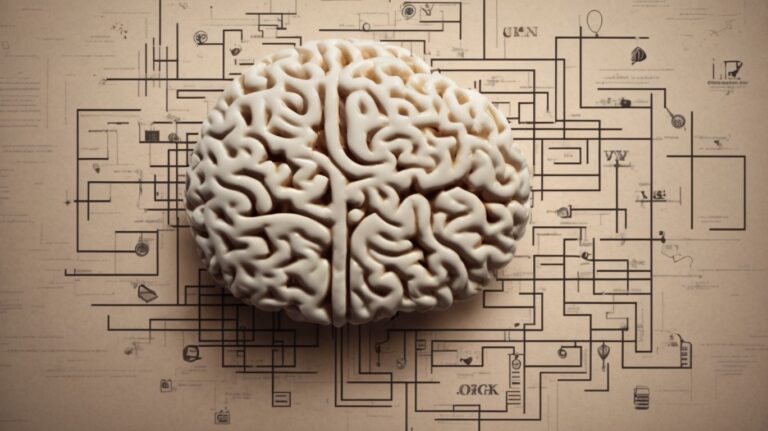Have you ever wondered what psychology is all about and how it influences various aspects of our lives? In this article, we will explore the five major domains of psychology – cognitive, behavioral, developmental, social, and clinical psychology.
We will delve into how these domains interact with each other and their real-world applications. From improving learning and memory to treating mental health issues, psychology plays a crucial role in understanding human behavior and interactions. Let’s dive into the fascinating world of psychology together.
Contents
- 1 Key Takeaways:
- 2 What Is Psychology?
- 3 What Are the Five Major Domains of Psychology?
- 4 How Do These Domains Interact?
- 5 What Are the Real-World Applications of These Domains?
- 5.1 Improving Learning and Memory through Cognitive Psychology
- 5.2 Changing Behavior through Behavioral Psychology
- 5.3 Understanding Human Development through Developmental Psychology
- 5.4 Exploring Social Interactions through Social Psychology
- 5.5 Treating Mental Health Issues through Clinical Psychology
- 6 Frequently Asked Questions
- 6.1 What are the five major domains of psychology and why are they significant?
- 6.2 How does the cognitive domain of psychology contribute to our understanding of the mind?
- 6.3 What is the significance of the behavioral domain in psychology?
- 6.4 How does the social domain of psychology impact our interactions with others?
- 6.5 In what ways does the developmental domain of psychology play a role in our lives?
- 6.6 What does the biological domain of psychology study and why is it important?
Key Takeaways:
What Is Psychology?
Psychology is the scientific study of the mind and behavior, encompassing various branches that delve into human cognition, emotional responses, and observable actions.
One important branch of psychology is cognitive psychology. It focuses on mental processes such as thinking, problem-solving, language, and memory.
Another significant approach is behaviorism, which emphasizes the role of environmental factors in shaping behavior. This perspective looks at how external stimuli and reinforcement influence behavior.
Neuroscience, on the other hand, plays a crucial role in understanding how the brain influences behavior and mental functions. It combines biology and psychology to study the relationship between the brain and behavior.
Overall, these diverse branches of psychology work together to provide a comprehensive understanding of human behavior and mental processes.
What Are the Five Major Domains of Psychology?
The five major domains of psychology include cognitive psychology, behavioral psychology, developmental psychology, social psychology, and clinical psychology, each offering unique insights into human thought, behavior, and mental health.
Cognitive psychology focuses on mental processes such as perception, memory, and problem-solving. It explores how people think, learn, and remember.
Behavioral psychology delves into observable behaviors, studying how behaviors are learned and impacted by the environment.
Developmental psychology examines the growth and changes that occur throughout the lifespan, from infancy to aging adults. It sheds light on how individuals evolve physically and emotionally.
Social psychology looks at how individuals are influenced by social interactions and societal norms. It studies topics like conformity, prejudice, and group dynamics.
Clinical psychology delves into the diagnosis, treatment, and prevention of psychological disorders. It focuses on improving individuals’ mental health and well-being.
Cognitive Psychology
Cognitive psychology explores mental processes such as perception, memory, and problem-solving, shedding light on how individuals perceive, think, and process information in various contexts.
Sensation and perception play crucial roles in cognitive psychology research, investigating how individuals interpret and make sense of the world around them.
Researchers use various methodologies, including experimental studies, neuroimaging techniques such as fMRI, and cognitive assessments to delve into the intricate workings of the human mind.
By studying how cognitive functions interact with sensation and perception, scientists aim to understand the underlying mechanisms that influence human behavior, decision-making, and emotions.
Behavioral Psychology
Behavioral psychology focuses on observable behaviors, investigating behavior patterns, conditioning processes, and the applications of behavioral principles in therapeutic interventions.
In behavioral psychology, understanding behavior patterns involves analyzing how individuals respond to various stimuli and how these responses can be modified through different approaches such as behavior therapy.
One core principle is the idea of reinforcement and punishment, where behaviors can be strengthened or weakened based on their consequences.
By studying human behavior through the lens of behavioral psychology, researchers and practitioners aim to develop effective strategies for behavior modification, enhance mental health, and improve overall well-being.
Developmental Psychology
Developmental psychology delves into the study of human growth and change across the lifespan, examining how individuals develop physically, emotionally, and cognitively from infancy to old age.
One of the key principles of developmental psychology is the concept of stages of development. This suggests that individuals progress through distinct phases with characteristic behaviors and milestones.
For instance, Erikson’s stages of psychosocial development emphasize the importance of resolving specific psychosocial crises at different life stages to achieve psychological well-being. Developmental theories also highlight the impact of environmental factors, such as family, peers, and cultural influences, on shaping human behavior and mental processes throughout life.
Social Psychology
Social psychology explores how individuals interact with others, examining social behaviors, attitudes, and the influence of social factors on human behavior in different social contexts.
This field delves into the intricacies of social interactions and aims to uncover the underlying motivations behind why people act a certain way in group settings. Understanding how social behavior is shaped by the perceptions and expectations of others is a fundamental aspect of social psychology.
Researchers often study phenomena such as conformity, where individuals adjust their behavior to align with group norms, and obedience, where individuals comply with authority figures. By examining these aspects, social psychology provides valuable insights into how societal norms, group dynamics, and social influence impact human interactions.
Clinical Psychology
Clinical psychology focuses on assessing, diagnosing, and treating mental illnesses and psychological disorders, employing therapeutic interventions to enhance individuals’ mental health and well-being.
This field plays a crucial role in providing support and guidance for individuals experiencing a wide range of psychological challenges.
Through various therapy approaches, such as cognitive-behavioral therapy, psychoanalysis, and humanistic therapy, clinical psychologists strive to understand the root causes of their patients’ struggles and equip them with coping mechanisms.
Interventions like mindfulness techniques, relaxation training, and exposure therapy are utilized to help individuals manage symptoms effectively.
How Do These Domains Interact?
The interaction among the domains of psychology is complex, with cognitive psychology influencing behavioral psychology, developmental psychology impacting social psychology, and clinical psychology interconnected with all other domains.
Understanding these connections is crucial for psychologists to comprehend the complex human mind and behavior.
Cognitive psychology delves into mental processes, such as memory, perception, and problem-solving, affecting how individuals behave and interact with their environment.
Meanwhile, the theories and research in developmental psychology provide insights into how social interactions shape individuals’ behaviors and beliefs, directly influencing the principles of social psychology.
Moreover, clinical psychology encompasses a wide range of psychological disorders, drawing on knowledge from all domains to provide effective treatment and intervention strategies.
How Does Cognitive Psychology Influence Behavioral Psychology?
Cognitive psychology influences behavioral psychology by emphasizing internal mental processes, cognitive mechanisms, and how they shape observable behaviors and responses in individuals.
This focus on the role of cognition in behaviorism highlights the importance of understanding how thoughts, beliefs, and perceptions influence the way individuals act and react in various situations.
By analyzing cognitive processes such as attention, memory, and decision-making, psychologists can trace the root causes of human behavior patterns and emotional responses.
How Does Developmental Psychology Affect Social Psychology?
Developmental psychology influences social psychology by examining how individuals’ growth, experiences, and interpersonal relationships during different life stages shape their social behaviors and interactions.
At the core of this connection lies the concept of developmental milestones, which are key markers in an individual’s growth that significantly influence their social development.
For instance, achieving milestones such as walking or forming attachments during infancy can impact how a person interacts with others later in life. Furthermore, Erikson’s stages of psychosocial development play a crucial role in understanding how individuals navigate social challenges at different ages.
Each of Erikson’s stages presents a unique psychosocial crisis that must be resolved for healthy development. These stages not only shape personal identity but also impact social interactions and relationships.
For example, successfully resolving the trust versus mistrust stage in infancy can lead to the development of basic trust in others, fostering healthy social relationships. On the other hand, failure to resolve these stages can result in difficulties in forming connections with others.
Social experiences and interactions throughout one’s life play a significant role in shaping human behavior in social contexts. These experiences contribute to the development of social skills, emotional intelligence, and understanding of societal norms.
Individuals who have positive social experiences, such as supportive relationships and effective communication, are more likely to exhibit pro-social behaviors and engage positively with others. Conversely, negative social experiences, such as social rejection or isolation, can lead to the development of maladaptive behaviors and interpersonal difficulties.
How Does Clinical Psychology Connect to All Other Domains?
Clinical psychology serves as a unifying force among all other domains of psychology, applying psychological principles to assess, diagnose, and treat mental health issues, integrating therapeutic approaches across various psychological domains.
This field not only delves into the intricacies of mental health assessment but also explores diverse therapy methods to support individuals struggling with psychological disorders.
By offering a broad spectrum of interventions and strategies, clinical psychology aims to enhance the overall well-being of individuals facing various mental health challenges. Through evidence-based research and tailored treatment plans, psychologists in this field work collaboratively with clients to address and alleviate their psychological distress effectively.
What Are the Real-World Applications of These Domains?
The major domains of psychology offer real-world applications, such as improving learning and memory through cognitive psychology, changing behavior through behavioral psychology, understanding human development via developmental psychology, exploring social interactions with social psychology, and treating mental health issues using clinical psychology.
In the realm of cognitive psychology, researchers study how people acquire, process, and store information. This knowledge has practical applications, particularly in educational settings. Teachers can use cognitive principles to design their lessons, such as incorporating mnemonic devices and spaced repetition techniques, to enhance student retention and comprehension.
Improving Learning and Memory through Cognitive Psychology
Cognitive psychology contributes to enhancing learning and memory processes by studying how cognitive functions like attention, memory encoding, and retrieval mechanisms influence information retention and acquisition.
Research in cognitive psychology has shown that memory enhancement techniques such as chunking, spaced repetition, and mnemonic devices can significantly boost an individual’s ability to remember and recall information.
Cognitive training methods, including brain games and puzzles, have been proven to sharpen cognitive functions and improve overall memory performance. By understanding the underlying mechanisms of cognitive processes, psychologists can develop targeted interventions to optimize learning outcomes and memory retention for individuals of all ages.
Changing Behavior through Behavioral Psychology
Behavioral psychology facilitates behavior change through the application of behavior modification techniques, reinforcement strategies, and therapeutic interventions to address maladaptive behaviors and promote positive behavior patterns.
One of the key methods in behavior modification is positive reinforcement. This technique involves rewarding desired behaviors to increase the likelihood of their recurrence. By administering rewards or positive consequences, individuals are motivated to continue exhibiting the desired behavior.
Negative reinforcement, which involves the removal of unfavorable stimuli upon displaying a desired behavior, also plays a role in shaping behavior.
Cognitive-behavioral therapy, a widely used therapeutic approach, combines cognitive restructuring with behavior modification techniques to address the interplay between thoughts, feelings, and behaviors. This integrated approach helps individuals recognize and modify maladaptive patterns of thinking and behavior, leading to long-lasting behavior changes.
Understanding Human Development through Developmental Psychology
Developmental psychology aids in understanding human development by examining how biological, cognitive, and socioemotional changes across the lifespan influence individuals’ behaviors, thoughts, and emotions.
Throughout various stages of human growth, developmental psychology plays a crucial role in unraveling the intricate processes that shape personality, cognition, and social interactions.
From infancy to old age, researchers delve into how individuals progress from simple reflexes to complex problem-solving abilities, analyzing the role of genetics, environment, and experience in shaping these milestones.
These cognitive processes include language acquisition, memory development, and reasoning skills, all of which have a significant impact on interactions with the world around them.
Socioemotional changes, such as forming attachments, developing empathy, and navigating social relationships, are pivotal in understanding human behavior and mental well-being.
By studying these fundamental aspects of growth and change, developmental psychology provides valuable insights into the complexities of the human mind and helps us comprehend the multifaceted nature of human development.
Exploring Social Interactions through Social Psychology
Social psychology delves into exploring how individuals interact, form relationships, and influence each other in social settings, investigating social behaviors, attitudes, and group dynamics.
Social psychology examines the various factors that shape human behavior within social groups and how individuals navigate complex social environments.
One key area of study within social psychology is the concept of conformity, which refers to the tendency for individuals to adjust their behaviors or beliefs to align with the group.
Researchers in this field explore social influence, which encompasses the ways in which individuals are affected by the presence or actions of others.
Understanding interpersonal relationships is also a crucial aspect of social psychology, as it sheds light on the dynamics of connections between people and the impact of these relationships on individual behavior.
Treating Mental Health Issues through Clinical Psychology
Clinical psychology plays a pivotal role in treating mental health issues by providing assessments, diagnoses, and evidence-based therapeutic interventions to address psychological disorders and promote individuals’ well-being.
Therapy modalities within clinical psychology encompass a wide range of approaches, including cognitive-behavioral therapy, psychoanalysis, humanistic therapy, and dialectical behavior therapy.
Each of these modalities involves different techniques and philosophies aimed at helping individuals cope with their psychological challenges effectively.
Diagnostic assessments in clinical psychology involve thorough evaluations of individuals’ emotional, cognitive, and behavioral patterns to formulate accurate diagnoses and treatment plans.
These assessments often include clinical interviews, psychological testing, and collaboration with other healthcare professionals.
Intervention strategies in clinical psychology can vary depending on the specific psychological disorder being treated.
These strategies can include individual therapy, group therapy, medication management, behavioral interventions, and psychoeducation to enable individuals with the tools they need to manage their mental health effectively.
Frequently Asked Questions
What are the five major domains of psychology and why are they significant?
The five major domains of psychology are cognitive, behavioral, social, developmental, and biological. They are significant because they encompass all aspects of human behavior and thought, providing a comprehensive understanding of the complexity of the human mind and behavior.
How does the cognitive domain of psychology contribute to our understanding of the mind?
The cognitive domain of psychology focuses on mental processes such as attention, perception, memory, and problem solving. It helps us understand how the mind processes information, makes decisions, and ultimately influences our behavior.
What is the significance of the behavioral domain in psychology?
The behavioral domain of psychology studies observable behaviors and how they are learned and reinforced. It is significant because it allows us to understand how our environment and experiences shape our actions and reactions.
The social domain of psychology examines how individuals interact with others and how social influences affect behavior. It is significant because it helps us understand the complexities of human relationships and how they shape our thoughts and behaviors.
In what ways does the developmental domain of psychology play a role in our lives?
The developmental domain of psychology focuses on how individuals change and grow throughout their lifespan. It is significant because it helps us understand the physical, emotional, and cognitive changes that occur as we age and how these changes impact our behavior.
What does the biological domain of psychology study and why is it important?
The biological domain of psychology explores the connection between the brain, hormones, and genetics and how they influence behavior. It is significant because it allows us to understand the biological basis of mental processes and disorders, leading to advancements in treatment and interventions.





